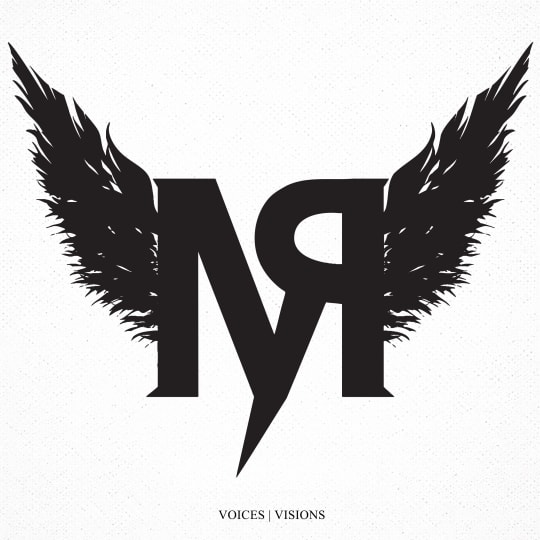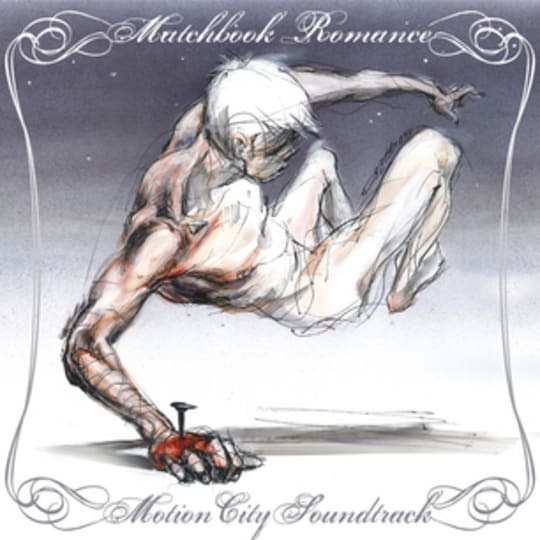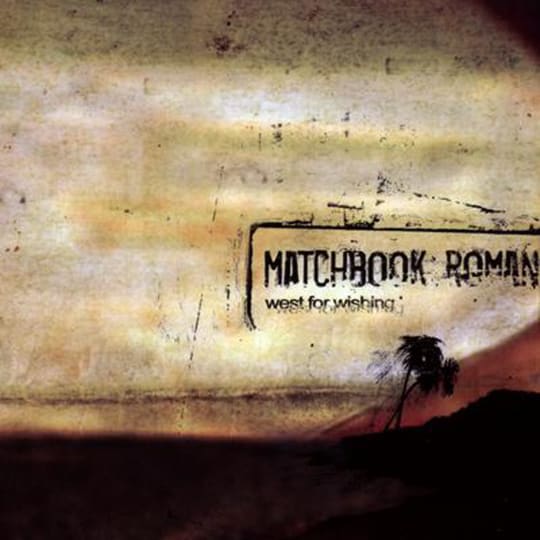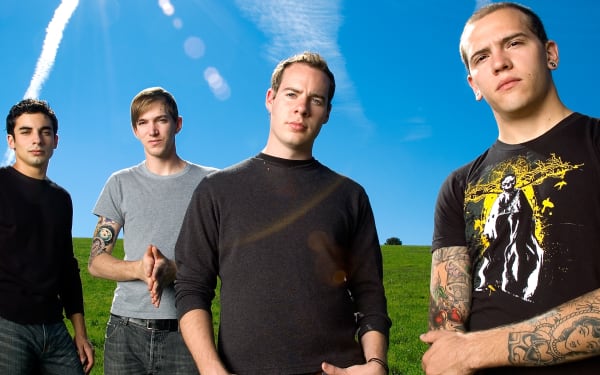Matchbook Romance Bio
Change is unquestionably a constant in life. When Matchbook Romance began in 2001, the idea of playing music for a living felt like a dream, a romantic fantasy that dwelt in each member of the band's imagination. And, for years, anyway, it seemed like it would remain that way. "We never thought it was something that could actually come true for us," says vocalist/guitarist Andrew Jordan who, at the time, was living at home and working as a waiter at a local restaurant. "We had seen so many other bands try and reach for that place in the world only to fall short. We always thought, 'What are our chances??' Still, people believed in the band - their friends, families and peers- and they encouraged Matchbook Romance's just-stepping-into-the-world rank and file to drop their impending classes at various community colleges in and around Poughkeepsie, NY that fall, in order to concentrate on the band. Which, they did. Thankfully, for us, they did.
Matchbook Romance spent the next six months recording a group of demos that would attract the attention of Epitaph president Brett Gurewitz' - a man who would later sign the relatively green band (literally the day before stepping on a plane to finalize contracts with the longstanding punk label, the band's then-18-year-old drummer Aaron Stern graduated from high school). Gurewitz also produced their first real recording, the West For Wishing EP, in 2003, but it was Matchbook Romance's debut, Stories And Alibis, that the world would really take to. The album's list of successes now speaks for itself: following its late 2003 release came the video for "My Eyes Burn," a run on the cover of scene bible Alternative Press and a slot headlining the first-ever Epitaph Tour.
In between, Stories And Alibis sold over 200,000 copies and the band absolutely lived on the road in support of it.
As Matchbook Romance began writing the initial version of what would become their second album, VOICES, they began to take their musical ideas to a variety of new levels. The band was writing constantly. If you were to have walked into the back lounge during one of the many tours behind Stories And Alibis chances are the mirrored walls in their tour bus would have been covered with ideas for lyrics and ideas for new songs. Matchbook Romance knew their next record would have to stand apart and the material they had begun self-recording while out on the road behind Stories And Alibis - all of it decidedly more sparse, moody and meditative- was significantly removed from the sound they honed on their debut. One significant factor, as Jordan puts it poetically, is that they "declared war on power chords."
Though distorted, muscular major chords are still present on VOICES, the songs they recorded at Longview Farms Studios (an honest-to-goodness barn in rural Massachusetts that's rumored to be haunted and keeps horses on the facility) contain a sort of cinematic yearning that was only hinted at on Stories And Alibis. Which, says Jordan, was all part of the vibe that Matchbook Romance spent so long trying to conjure. "I wanted to create new dynamics, I wanted to mimic an orchestra," Jordan explains. "We had to overcome Stories if we were going to get any attention, and set ourselves apart." Getting to this point, however, wouldn't happen overnight.
Months- even years - of writing preceded the final version of VOICES that was recorded at Longview with indie music vet John Goodmanson (Blood Brothers, Blonde Redhead), and for a while there it seemed like Matchbook Romance's ambitions might have gotten the best of them. "I could see a little bit of what Andy was going for," bassist Ryan Kienle says of the material that Jordan would occasionally bring back to the group. "But in my mind it was like, 'I don't really know exactly where he's going.'"
While VOICES, an interlocking mix of complex balladry and forward-thinking rock, is a huge change for the members of Matchbook Romance, it's also a necessary one?and after weeks of recording the album's dozen songs with Goodmanson it was clear that huge leaps had been made. If Gurewitz, who had persistently tracked the album's progress, was ever worried, now he was elated. "I don't know if Brett ever expected something like this, I think we had him a little worried" Jordan says. "But after he heard the final version of the record he told me, 'I can't explain how much this record means to me. It's as if you guys put a man on the moon.'"
That's a pretty great approximation of how VOICES works as a whole. It's a staggering idea at first - how could the same band of suburban kids who started years earlier rise to the challenge of something this unapologetically ambitious? But then the idea begins to grow with you and on you over time. In life and in music, all things must change. But that doesn't mean they necessarily get any better or worse - they just create new experiences that you'll find familiar emotions in along the way. "We could?ve talked about this 24 hours a day, seven days a week and we still couldn't have fathomed it. It was such a long shot to accomplish something like this, but we had to have reason to step aside and allow our imaginations enough room to come out. "







